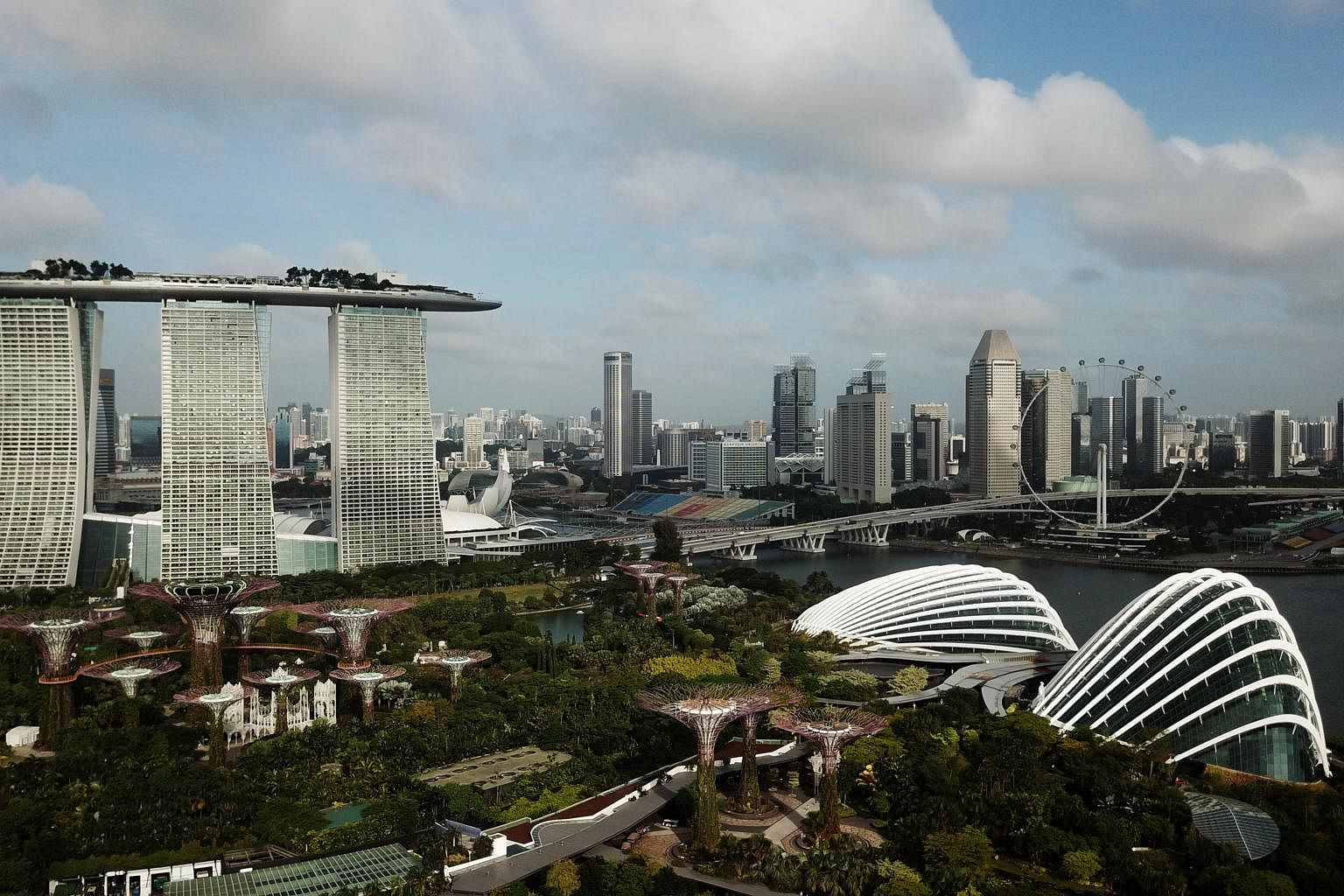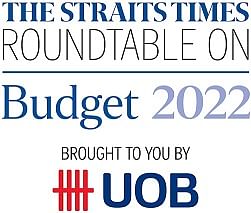SINGAPORE - New tax measures and foreign worker policies announced in the Budget this year should not take away from Singapore's status as a hub, as the country also relies on other factors to remain attractive to multinational enterprises, experts said.
They were discussing the impact of the Budget initiatives during a roundtable organised by UOB and The Straits Times on Monday (Feb 21) that was moderated by ST associate editor Vikram Khanna.
Major tax measures were unveiled during the Budget, including raising the goods and services tax, carbon tax, and personal income, property and luxury vehicle taxes.
The panel discussion also touched on the possible impact of the global minimum tax rate of 15 per cent on large multinational companies that 137 countries under the Organisation for Economic Cooperation and Development, including Singapore, have agreed on.
While this would render some of Singapore's tax incentives redundant, it should not detract from the other factors that make Singapore a competitive and attractive place for large global firms, the panellists said.
Singapore Business Federation chief executive Lam Yi Young said: "I think we must also remember that our competitiveness is not built on the tax rate alone, but really the entire business ecosystem."
He added: "I think we still have a very compelling proposition as a regional headquarters because of our connectivity, our familiarity with the region, the entire business ecosystem and the certainty of governance."
UOB economist Barnabas Gan agreed that Singapore has a strong geographical advantage of being the gateway to Asia.
"We also compete in efficiency and value-added services. We have a very strong local workforce and the non-corruption approach as well as policy transparency," he said.
But Mr Lam added that Singapore cannot be complacent and has to continue providing certainty to global firms, including flexibility for them to bring in the foreign employees they need.
Panellist Richard Mackender, who is Deloitte's indirect tax and corporate secretarial services lead, said: "These multinational corporations are large and significant employers, and therefore making sure that they don't get scared away and continue to see Singapore as the place to be from a headquarters perspective and from an Asia footprint perspective is very important.
"I think Singapore has a great position as a place in Asia. What exactly it can do to protect its position, I think, is going to require an awful lot of discussion and some very serious conversations. I think it's going to be a long and perhaps fraught debate."

Another barrier for business in the future will be the increased carbon tax price, which will be raised from $5 per tonne of emissions currently to $25 in 2024 and 2025, and $45 in 2026 and 2027, before reaching $50 to $80 per tonne by 2030.
In response to Mr Khanna's question about whether firms will be able to cope with the steep jump in prices, Mr Lam said that even without the carbon tax, firms are under pressure from their investors and customers to be more sustainable.
"The carbon tax in a way helps to price in the cost of carbon emission so that companies can make the decision with it properly priced in," he said.
"Depending on what form the transition package comes in, the next few years really are an opportunity for companies to review their operations to become more sustainable, and this will put them in a stronger stead for the future."
Being a front runner in adopting sustainable initiatives also means firms can be in a better position to help others in the region, he added.
National Trades Union Congress assistant secretary-general Desmond Choo noted that Singapore has a significant oil and gas sector that "would be very much affected" by the carbon tax hikes and move to decarbonisation.
"But at the same time, there are important opportunities that will open up and jobs that were not available before. So how we manage the transition now, I think, is quite critical," he added, referring to how the labour movement will respond to Singapore's push towards decarbonisation.
The Republic's carbon tax has to reflect its stand on environmental, social and governance issues, which is "of material importance" to businesses looking to invest here, he said.
But Mr Mackender acknowledged that manufacturing firms may want to move their operations to another place with lower carbon taxes.
"It's always a balance around doing the right thing and making sure that we can effect change but, at the same time, not chasing business away and damaging the core.
"That's the challenge - making sure that we don't pluck so many feathers that the bird flies away."
Mr Gan also noted that the carbon tax price is still low compared with international standards and other areas like Europe. It also helps firms to meet green benchmarks when they export goods, for instance.
"Ultimately, we have to think for our children and children's children when it comes to business and the environment."


